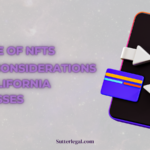Title 4 of the Jobs Act by, Sutter Law – San Francisco Business Law Firm
Despite the recent floundering of Title 3 of the JOBS Act before the Securities and Exchange Commission, it appears that Title 4 may actually come to fruition in the near future. So what does this mean for San Francisco startups? Our Business Law Firm strives to take complex legal terms and break them down into understandable readable blog post. If you like this post please repost it and help us add transparency to the legal profession.
Background
The JOBS Act has been around for a few years now. It was enacted by President Obama in April 2012 in an effort to encourage job and capital creation by reducing the regulatory hurdles for small, growing companies. But Title 3 and 4 required implementation by the Securities and Exchange Commission through rulemaking, which can often be a protracted grind. Originally, Title 4 had 90 days following passage of the Act to be implemented. Now in 2015, it looks more than ever like our patience may pay off.
Title 4 is also commonly referred to as Regulation A+, which is a slight jab at the provision it is seeking to amend, Regulation A. Reg A was an exemption that issuers could use to avoid registration of their securities sales and offers, as required under Section 3 of the Securities Exchange Act of 1933. Reg A allowed unregistered public offerings up to $5 million in a 12-month period.
But there was a problem. Reg A was a Trojan Horse. Contained within it was a burdensome Blue Sky Law provision – a mandate that, even though investors were exempt from federal registration, they still had to comply with securities law requirements for every state involved in the offering. This is true for San Francisco Startups business as well as all California business. Add to that other burdens, like the limit of $5 million for offerings and a requirement to file a mini registration with the SEC, and Reg A really started to stink. As a result, companies sidestepped Reg A in favor of other exemptions from Federal Registration, or they just bit the bullet and registered their sales with the SEC.
Congress recognized that Reg A was collecting dust in the corner and ordered the retooling through Reg A+ in Title 4. “It is our goal to make Reg A an effective and workable path,” SEC Chair Mary Jo White said recently at the meeting to finalize the Title 4 rules. Reg A+ circumvents Blue Sky Laws for certain offerings with a simple pre-emption doctrine: only federal law applies regarding securities registration and qualification, and not state law as well. Reg A+ also beefs up the 12-month offering limit from $5 million to $50 million, and allows for confidential SEC review of draft offering statements. Under Reg A+ Issuers can sell equity securities, debt securities, and convertible notes. They can sell securities of corporations, limited liability companies and limited partnerships, and REITs can use Reg A+ to raise money for real estate projects.
San Francisco Startups wishing to take advantage of Reg A+ will need to ensure they are properly formed as a corporation. If you have questions about the proper corporate structure please reach out to our San Francisco business law firm for legal guidance.
Nitty-Gritty
Lets look under the hood. Reg A+ proposes to establish two Tiers of investment. Under Tier 1, a company will be able to offer up to $20 million of securities in a 12-month period and selling security holders will be able to offer no more than $6 million of securities. Notably, under Tier 1, the preemption preference in Reg A+ does not apply, such that the offerings are still subject to the securities law of every state in which the Issuer offers and/or sells its securities (this included California). If a company limits its sales to a small number of states, state law applicability may not be a substantial matter. Additionally, the SEC will require a one-time report, with no subsequent reporting, for Tier 1 offerings.
Under Tier 2, a company will be able offer up to $50 million of securities in a 12-month period and selling security holders will be able to offer no more than $15 million of securities. It is in Tier 2 offerings that state preemption applies.
Additional requirements come with the additional capital limit under Tier 2. Companies offering under Tier 2 will need to file annual audited financial statements, semi-annual updates, and periodic event reports. Also, non-accredited investors in Tier 2 sales will be limited to a maximum investment of the greater of 10% of their annual income or 10% of their net worth. It’s under Tier 2 that we would start to see portal marketplaces for the exchange of securities.
There also exist limits on the companies eligible to exercise Reg A+. To name a notable few, companies are precluded from Reg A+ if they already report to the SEC, if they are issuing asset-backed securities or fractional undivided interests in oil or gas, or are disqualified under “bad actor” rules. San Francisco Startups wishing to take advantage of Reg A+ should ensure that they are not precluded.
Take Away
The Title 4/Reg A+ exemption is slated to become effective 60 days after publication in the Federal Register. Nevertheless, opposition exists which may further delay adoption. The National Association of Securities Administrators Association, a special interest lobby for state regulators, is not thrilled about state preemption and will likely challenge Title 4/Reg A+ in court. The NASAA “continues to have concerns that [Reg A+] does not maintain the important investor protection role of state securities regulators.” Indeed, it is this dissatisfaction that has caused the delay of Reg A+ implementation thus far. Should NASAA challenges prevail in court, the preemption advantage of Reg A+ may be nullified.
If Reg A+ does become effective, it will be interesting to see how Issuer view the role of unaccredited investors in capital formation. Crowdfunding under Title 2 of the JOBS Act may serve as a simpler means if the Issuer determines that non-accredited are not needed. With the involvement of non-accredited investors may come an unwanted increase in risk.
It will also be interesting to see how quality control emerges. Standard, reliable due diligence will need to be conducted on Issuers, necessitating a sector of rating agencies.
Another consideration is the need for a secondary market on which to buy and sell the securities. Until such market emerges, an investor may be saddled with his investment in a company for a while if the cap has already been met on sales by selling security-holders. If you have questions about Crowdfunding, Startups, or Business in San Francisco or just need advice on your Startup please feel free to contact our business law firm.






